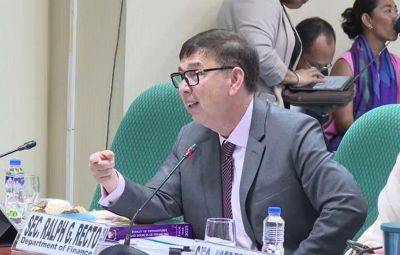Explainer: How inflation impacts our national budget
MANILA, Philippines — Senate Minority Leader Aquilino Pimentel III on Tuesday has questioned the impact of inflation on the national government’s budgeting.
He noted that Congress approved a budget for 2023 with the hope of meeting the government's target inflation rate.
Despite this, inflation for 2023 exceeded the target range of 2% to 4%. The actual headline inflation ended at around 6%.
“Do we use our budget to obsess with that budget? Kasi looks like it really does not affect much the process,” Pimentel said during the briefing.
According to Budget Secretary Amenah Pangandaman, higher inflation rates have an unexpected upside of higher government revenues.
“We have a budget sensitivity for the macroeconomic parameters, and based on our data, for inflation rate at least, a 1% increase of inflation will grow our revenues by P33.9 billion, and there’s no deficit implication is expected since government expenditures are limited by the available appropriations however,” Pangandaman said.
An International Monetary Fund (IMF) paper supports this, indicating that inflation can temporarily improve fiscal balances as revenue adjusts quickly, while primary expenditures take longer to catch up.
However, National Economic and Development Authority (NEDA) Secretary Arsenio Balisacan noted the negative effects of inflation on economic growth.
He explained that inflation drives up the cost of goods and services, leading to reduced consumer spending.
“Because of the unexpectedly high inflation resulted in the lower growth performance, as you could see the domestic demand growth was lower than expected, particularly household consumption was negatively affected by the high inflation, and because that high inflation was also associated with high interest rate with the lag, that also affected the investment side of the equation,” Balisacan explained.
A 2023 Pulse Asia survey supports these findings, showing that 95% of Filipinos are spending more on food, but more than half are actually eating less.
As a result, large chunks of the budget are devoted to assisting the population in coping with the impacts of inflation.
During the briefing, Pangandaman explained that







